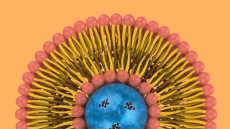Pigs give more support for fruit and veg rich diet
efficient at protecting against the effects of oxidative stress
than single fruits, says new research using pigs.
Dietary guidance recommends eating at least five portions of fruit and vegetables a day to reduce the risk of heart disease, stroke, and certain types of cancer, but studies have shown that people are falling short of the targets.
The new study, performed by researchers from the University of Ljubljana, Slovenia, supplemented the diets of 40 pigs with linseed oil (25 grams per day), a rich source of polyunsaturated fatty acids (PUFAs) that would induce oxidative stress and potential DNA damage.
Pigs were chosen due to the similarity of the digestive tract, and similar dietary needs with humans.
In addition to the linseed oil, four groups of eight pigs were supplemented with apples only (APP) (690 grams per day), strawberries only (STR) (745 grams per day), tomatoes only (TOM) (615 grams per day), or a mixture of all three (MIX) (230 g apples, 205 g strawberries, 248 g tomatoes).
Two control groups were used as comparisons - eight pigs ate the normal diet (CONT) and eight pigs ate the linseed oil supplemented diet (OIL).
After 22 days of each diet, the researchers measured DNA damage, the concentration of Malondialdehyde (MDA) - the end product of lipid peroxidation - and total blood levels of antioxidants.
"The OIL group compared to the CONT group had a statistically significant higher concentration of MDA in blood plasma at the end of the experimental period. The intake of all types of fruit significantly decrease plasma MDA concentration to the same extent," wrote lead author Tanja Pajk in the journal Nutrition (Vol. 22, pp. 376-384).
In terms of damage to DNA the mixture of apples, tomatoes and strawberries completely prevented any damage, when compared to the CONT group.
Apples also protected the DNA from damage, but the strawberries and tomatoes alone did not offer the same level of protection. The OIL diet resulted in statistically significant eight per cent damage.
"A possible explanation for the most effective reduction of DNA damage in the MIX group may be found in the synergistic activity of different water- and lipid-soluble natural antioxidants and therefore may be more effective than supplementation with any one type of fruit or vegetable," wrote Pajk.
Apples are a rich source of phenols, tomatoes are a rich source of lycopene and carotenoids, and strawberries are a rich source of vitamin C.
"The influence of tomatoes in lowering oxidative stress likely would be greater if they were given in the form of a paste or sauce because lycopene is better absorbed from heat-processed foods than from unprocessed sources," said Pajk.
This would support research from Japan that showed tomato juice could restore the natural balance between oxidants and antioxidants that is altered by tobacco smoke.
A report from the European Union showed that global fruit and vegetable production was over 1 230 million tonnes in 2001-2002, worth over $50 billion (€ 41 000 million). Asia produced 61 per cent, while Europe and North/Central America both producing nine per cent.












